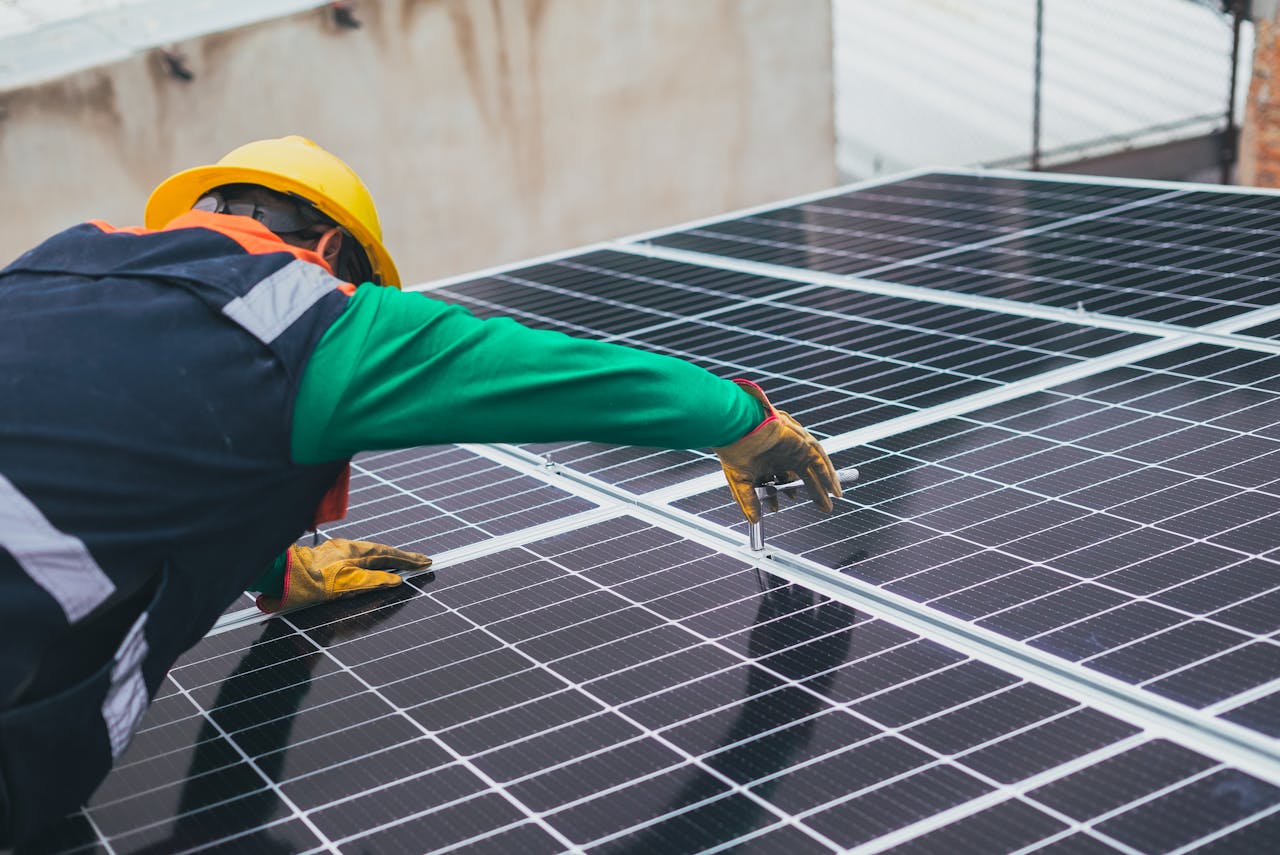Solar panels are a great way to harness renewable energy, saving both money and the environment. However, winter can pose a few challenges for solar power systems. As temperatures drop and daylight hours shorten, you may wonder how your solar panels will hold up.
Common Winter Issues for Solar Panels
Winter presents a variety of challenges that can affect the efficiency and function of solar panels. The primary concern during cold months is the reduction in sunlight hours. With shorter days and longer nights, solar panels have less time to absorb sunlight and generate energy. In addition, cloudy weather, which is more prevalent in winter, further reduces sunlight reaching the panels.
Cold temperatures also affect how well solar panels perform. While solar cells operate efficiently in cooler climates, the presence of frost can reduce their effectiveness. Frost forms on the panels and can block sunlight, similar to snow and ice.
Another issue is wear and tear caused by harsher weather conditions. Wind, ice formation, and heavy snowfall can put physical stress on solar panels and their mounting structures. This stress can potentially lead to damage if not adequately accounted for during installation.
It’s essential to understand these winter challenges to better prepare and manage your solar energy system. By acknowledging these potential hurdles, you can take preventative measures to ensure your solar panels continue working throughout winter, providing sustainable energy all year.
Impact of Snow and Ice Accumulation
Snow and ice build-up is a significant winter concern for solar panel owners. When snow covers a solar panel, it blocks sunlight from reaching the photovoltaic cells, stopping the panel from generating electricity. Even a thin layer of snow can significantly impact energy production.
The weight of accumulated snow poses another threat. Heavy snow can add stress to the panels themselves and their mounts, increasing the risk of physical damage. Monitoring snow build-up is crucial for the panels’ integrity and function.
Ice formation on panels can exacerbate this situation. Ice not only blocks sunlight but also creates a slick surface, making maintenance hazardous. It’s important to handle ice carefully to avoid damaging the panels.
To manage snow and ice effectively, consider these steps:
1. Tilt Adjustment: Adjust the tilt of solar panels to a steeper angle. This can help snow slide off more easily.
2. Regular Cleaning: Use a soft brush or broom to gently clear panels, avoiding abrasive materials.
3. Heat Tape: Add heat tape around the frame of panels to minimise ice build-up.
By taking these proactive steps, you can keep your solar system in optimal condition, even when faced with winter’s snow and ice challenges.
Maintaining Efficiency During Shorter Days
Solar panels can still work effectively in winter, even with the reduced daylight hours. The key is to maximise the efficiency of the time they do have. One way to maintain efficiency is through proper system monitoring. This involves keeping track of your system’s performance regularly, so you can spot any drops in energy production quickly and take action if needed.
Orientation is critical for maximising solar gain. Ensure that panels are placed to capture the maximum amount of sunlight throughout the day. Evaluating the angle and direction of your panels could lead to adjustments that improve their performance, capturing more light even on short winter days.
Battery storage can also be a proactive way to keep your home powered when the sun isn’t available. While solar panels generate less during winter, battery storage systems can store surplus energy produced during sunnier hours, providing electricity when needed. This makes having batteries an effective way of cushioning the effects of shorter daylight periods.
If the energy production of your solar system is lower than expected, you might need to check for other factors like shading caused by trees or buildings that are blocking sunlight. Trimming branches or repositioning panels, if possible, could help capture more light during these shorter days.
Solutions and Tips for Optimising Performance
To get the best out of your solar panels during winter, it’s important to act on certain tips and recommendations. Regular maintenance and some tweaks can go a long way in ensuring your panels perform efficiently.
1. Regular Inspection: Conduct periodic inspections to ensure all components are in good condition. Look for any visible damage or wear and tear that might affect performance.
2. Inverter Check: Make sure your inverter is working correctly. The inverter is essential to converting the sun’s energy from DC to AC power for home use. Any issues with the inverter can diminish overall effectiveness.
3. Energy Consumption Management: Be mindful of your energy usage, especially during low production periods. Adjust your energy consumption habits by running high-energy appliances during peak sunlight hours.
4. Professional Maintenance: Schedule regular professional check-ups to ensure everything is operating smoothly and efficiently, especially after harsh weather episodes.
Implementing these solutions will help keep your solar panels operating at peak efficiency, even during the frosty winter months. Being proactive about maintenance and operation can make a significant difference.
Conclusion
Maintaining solar panel efficiency in winter requires a mix of understanding common challenges and implementing effective strategies. By addressing snow and ice accumulation, managing shorter daylight hours carefully, and proactively maintaining your system, you can continue to benefit from solar energy all season long. Regular checks and taking preventive measures will help your system to withstand winter’s rigours.
Embracing solar energy, even during challenging seasons, is a smart step towards sustainable living. At Shine Solar, we are dedicated to helping you maximise the potential of your solar system. Contact us to learn how our solar panel installations can ensure your home remains eco-friendly and energy-efficient, regardless of the weather. Let’s make sure you’re ready for whatever the season brings!

